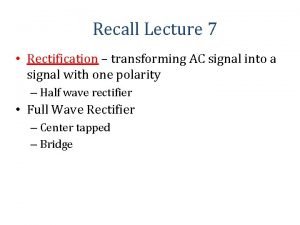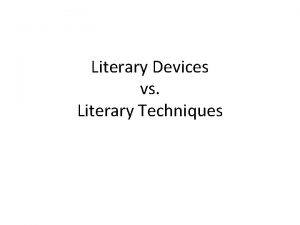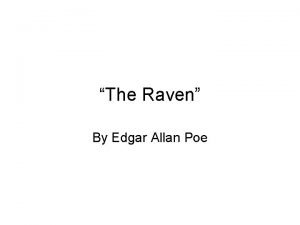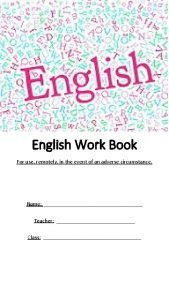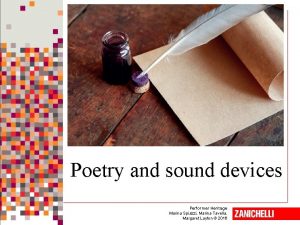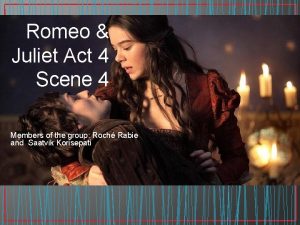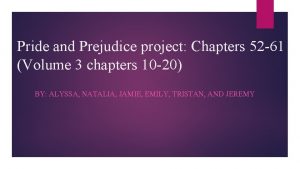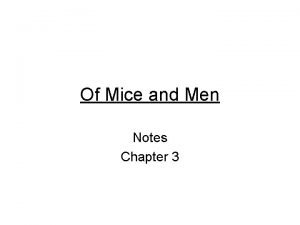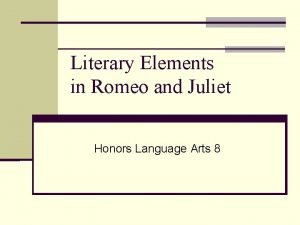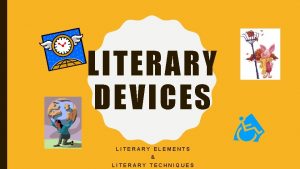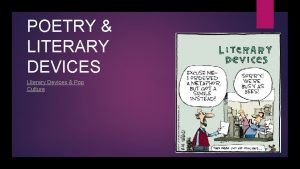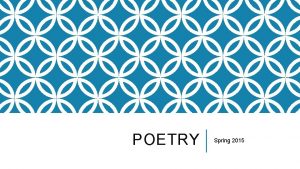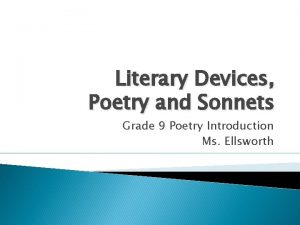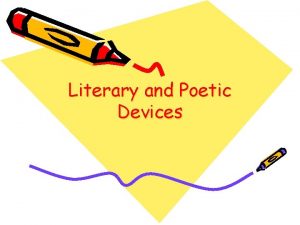POETRY AND LITERARY DEVICES Ms Peak and Mrs
















- Slides: 16

POETRY AND LITERARY DEVICES Ms. Peak and Mrs. Plough Quarter 1

KWL CHART What do we know about plays? What do we know about poetry? What do we know about literary devices? What do we want to know about these topics? We will revisit what we learned at the end of the lesson.

POETRY TERMS Epic: A long narrative poem where Quatrain: A four-line stanza poem the heroic protagonist engages in that rhymes (ABAB, ABAC, AABA, action in a mythical story. or ABBA). Couplet: A pair of successive rhyming lines, usually of the same length Haiku: A Japanese verse form poem that does not rhyme. Follows three lines of five, seven, and five syllables. Sonnet: A 14 -line poem with a varying rhyming scheme. Ode: A ceremonial lyric poem that celebrates a person, place, thing, or idea.

MORE POETRY TERMS Meter: The rhythmical pattern of stressed and unstressed syllables in verse. • Dimeter • Trimeter • Tetrameter • Pentameter • Hexamater • Heptamater Verse: Poetry in general or a single line in a poem. Iamb: A metrical foot consisting of an unaccented syllable followed by an accented syllable. The words “unite” and “provide” are both iambic. Stanza: A grouping of lines separating from others in a poem (aka a “paragraph” in a poem).

EVEN MORE POETRY TERMS Foot: The basic unit of measurement of accentual-syllabic meter. A foot usually contains one stressed syllable and at least one unstressed syllable. Blank Verse: An un-rhyming iambic pentameter, also called heroic verse. This 10 -syllable line is the predominant rhythm of traditional English dramatic and epic poetry. Prose: Written or spoken word in Free Verse: A poem with no meter or rhymes. Flows closely to natural speech. natural form without metrical structure.

LITERARY DEVICES

ALLUSION • Definition: An indirect passing reference. • Example: “Don’t act like a Romeo in front of her. ” • “Romeo” is a reference to Verona’s starcrossed lover, Romeo, in Romeo and Juliet.

MONOLOGUE • Definition: a long speech. • Example : “But soft, what light through yonder window breaks? It is the east and Juliet is the sun! Arise, fair sun, and kill the envious moon, Who is already sick and pale with grief… O that I were a glove upon that hand, That I might touch that cheek!” –Romeo (II. ii. 2 -27)

SOLILOQUY • Definition: A monologue delivered by a single character who is the only person on stage; it is delivered directly to the audience and includes the character’s inner thoughts. • Example: “To be, or not to be–that is the question: Whether ‘tis nobler in the mind to suffer The slings and arrows of outrageous fortune…”- Hamlet (III. i. 57 -70)

PUN • Definition: A joke that exploits the different meanings of a word. • Example: What is the difference between a conductor and a teacher? A conductor minds the train and a teacher trains the mind. • Example in Literature: “Not I, believe me. You have dancing shoes with nimble soles; I have a soul of lead” -Romeo (I. iv. 14 -15)

HYPERBOLE • Definition: A dramatic overstatement for effect. • Example: I am trying to solve a million problems today! • Example in Literature: “Neptune’s ocean wash this blood Clean from my hand? No. This my hand will rather The multitudinous seas incarnadine, Making the green one red. ” –Macbeth (II. ii. 61 -64)

IMAGERY • Definition: The use of figurative language to represent objects, actions, and ideas and the way it appeals to the senses. • Example: “It was a rimy morning, and very damp. I had seen the damp lying on the outside of my little window. . . ”- Pip from Great Expectations by Charles Dickens.

THEME • Definition: The main idea of a work. • Example: Love conquers all.

CAESURA • Definition: A pause used for effect. • Example: I’m nobody! ||Who are you? Are you nobody, too? Then there’s a pair of us|| — don’t tell! They’d banish ||– you know! -from I’m Nobody by Emily Dickenson

MOTIF • Definition: Motif is an object or idea that repeats itself throughout a literary work. • Example: The idea of good versus evil in Harper Lee’s To Kill a Mockingbird

IRONY • Definition: A figure of speech in which words are used in such a way that their intended meaning is different from the actual meaning of the words. • Verbal Irony: A sarcastic remark like calling someone a genius when they say something foolish. • Situational Irony: Occurs when, for instance, a man is chuckling at the misfortune of the other even when the same misfortune, in complete unawareness, is befalling him. • Dramatic Irony: When the characters in a work are oblivious of the situation but the audience is not. E. g. “Upon the murderer I invoke this curse – whether he is one man and all unknown, Or one of many – may he wear out his life in misery to miserable doom!” -From Oedipus Rex where the main character curses the man who curses the city but in actuality he is the man and he curses himself.
 Peak voltage to rms formula
Peak voltage to rms formula Peak to peak voltage
Peak to peak voltage Widows peak dominant or recessive
Widows peak dominant or recessive Literary terms in poetry
Literary terms in poetry Intro to poetry billy collins
Intro to poetry billy collins Poems with literary devices highlighted
Poems with literary devices highlighted They are mrs garcia and mrs castro
They are mrs garcia and mrs castro They are mrs garcia and mrs castro
They are mrs garcia and mrs castro Mrs. darling was ___________ of mrs. s.
Mrs. darling was ___________ of mrs. s. Non narrative poem examples
Non narrative poem examples Poetry and sound devices zanichelli
Poetry and sound devices zanichelli Input and output
Input and output Summary of romeo and juliet act 4 scene 4
Summary of romeo and juliet act 4 scene 4 Volume 3 chapter 10 pride and prejudice
Volume 3 chapter 10 pride and prejudice Of mice and men personification
Of mice and men personification Literary devices in romeo and juliet
Literary devices in romeo and juliet Literary devices in prologue of romeo and juliet
Literary devices in prologue of romeo and juliet

